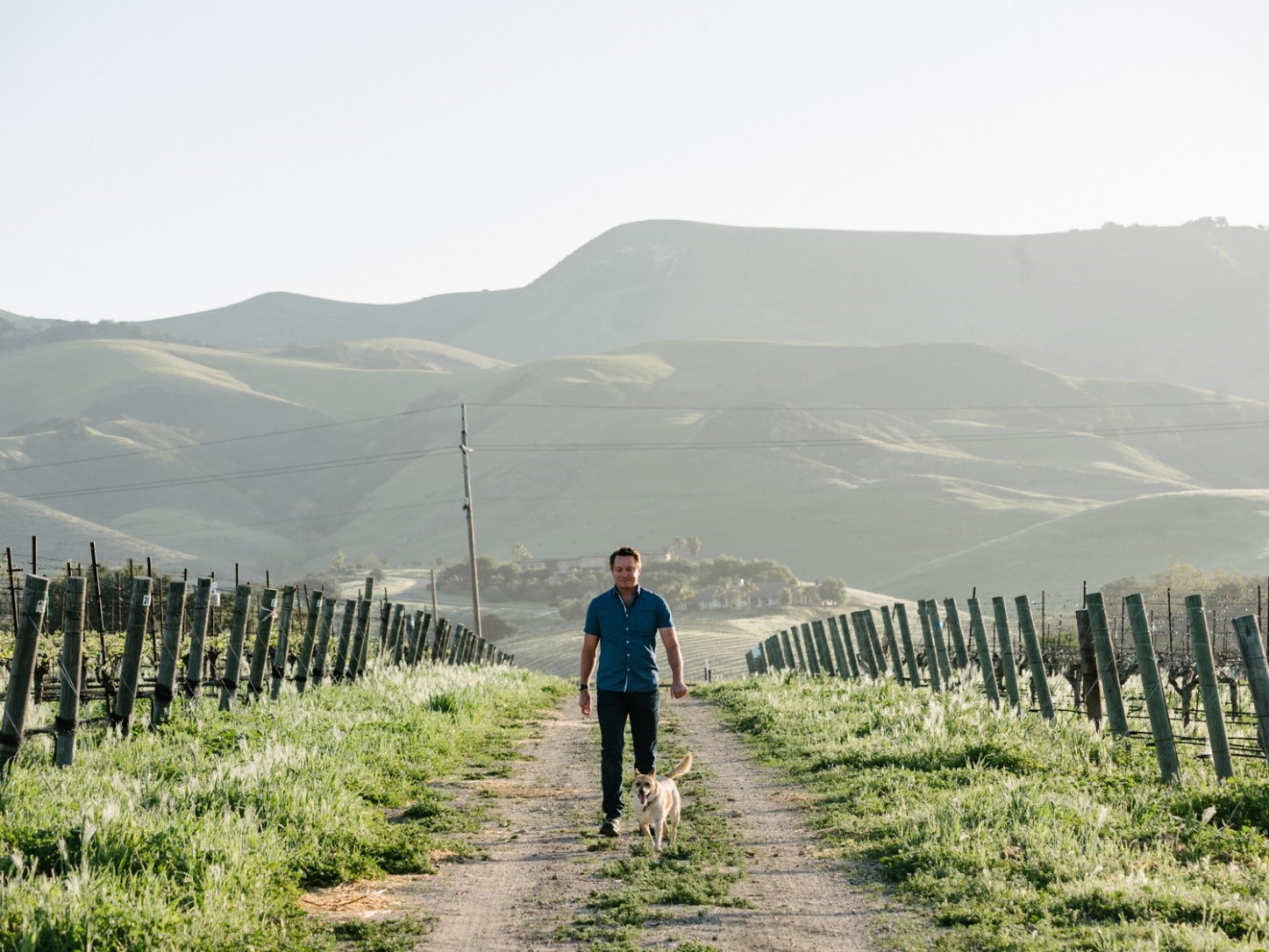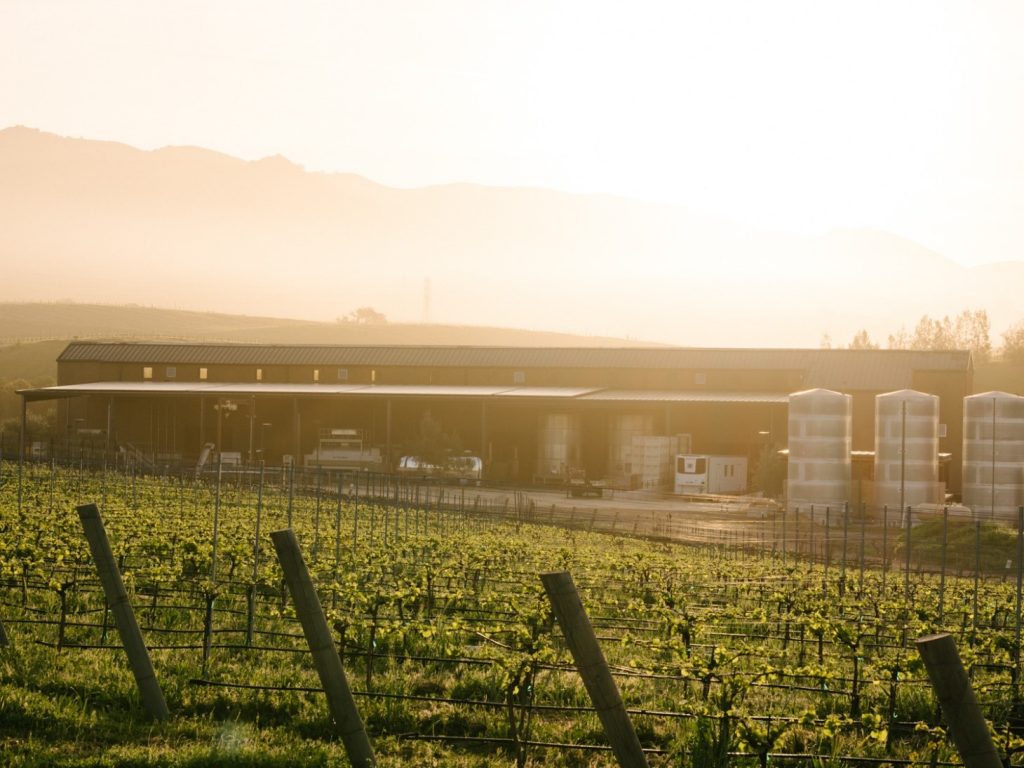
A Steward of the Land
I heard Chamisal Vineyards was looking for a new winemaker back in 2006. I was the 36th candidate interviewed. Either they really liked me or were sick of interviewing people, and I got the job. Chamisal was Domaine Alfred at the time.
My dad is a journalist in New Zealand. As I was growing up he was writing a lot about wine, though he doesn’t come from a wine background. He sort of stumbled into it. At one time he was working for one of New Zealand’s main wine publications. Needless to say, we drank a lot of wine at home.
I got my undergraduate degree in geology, and then went back to graduate school for viticulture technology — I did feel a subtle pressure to study viticulture. Geology is very loosely connected — it’s the study of rocks, not soil.
Solid grounding in science helps in this career. One of the coolest things about being a winemaker is there is both art and science in it. The way I define that is science is black and white, right and wrong. You gather data and your data leads to a conclusion. There is a lot of science in winemaking, chemistry, biology (think yeast, bacteria) and also a large gray area. That is the art side; the winemaker dwells in gray area. There are numerous right ways of doing something, and depending on what you choose, it leads to a different style of wine. One can have the same quality level and everything done right but different approaches, and so different styles are the result. That’s the great thing about this role.
Back in 2003 I was working in Europe as a geologist. (I like to say I have worked with two of the most expensive liquids on the planet — petroleum and wine!) I was on my way back to New Zealand and broke the trip up in California to work harvest at Adelaida Cellars. I planned on staying just for harvest, but as things happened, I met a Cal Poly student who is now my wife. I came back to California as soon as I could and found a permanent position at Adelaida, where I was promoted to Assistant Winemaker, before moving over to Chamisal.
I still consider myself a Kiwi, though here is home, for now. We have considered moving back, and actually we did go back in 2005 without return tickets, assessed things and came back to California. It was the right decision at the time, but I would love for my children to experience some childhood living in New Zealand. The door is always open as we look at what the best options are for our family.

So, we came back. I was drawn to this property. I like being part of such a unique appellation in the Edna Valley, the coolest, oldest wine region in the area. I love the size of it — very small and very compact. We talk to one another, we know everyone locally. There is very little competitiveness. And I am pretty well suited to the position here, I’d like to think, because of my background. First and foremost, my background is in viticulture. I know farming really well for a winemaker, and my experience in New Zealand has given me a unique experience — the climate here is close to a New Zealand farming environment.

]The Chamisal property was purchased by Crimson Wine Group in 2008. At the time Crimson was seeking to acquire properties that were “at the top of the game,” so they could retain the assets, people, equipment. Crimson is a great group, truly. It’s not a huge corporate entity. Every property is estate based, which means they own the acreage and control it. So here we are a brand and stewards of land.
I consider Craig Williams, my former boss at Crimson, a mentor. He’s a walking encyclopedia of wine, really one of the most intellectual winemakers I have ever met. He starts his day reading wine blogs, and ends the day reading even more about wine, and talking to winemakers — that’s his life. His knowledge is so deep and passionate. He headed up Joseph Phelps for 26 years, building their insignia program. I also consider Terry Culton, winemaker at Adelaida, a mentor. He is the reason I’m in the U.S.; I wouldn’t have come back if it weren’t for him. They’ve both taught me to constantly hone my craft. I know I’ll never attain perfection, but we must constantly try to improve, never being happy with the status quo.
I see my role as a farmer and a steward of the land, intervening as little with nature as possible. We don’t use any herbicide or synthetic fertilizers. We compost our grape waste; it goes back into our vineyard. We are really trying to keep it self-contained. Wines come in, we use minimal sulfur dioxide, with no added yeast or bacteria. We try not to add anything, to preserve and ensure what’s showing in the wines is what we are getting from our terroir.
Yesterday, my son who is eight, asked if his class could take a field trip here, but unfortunately I had to say no. I assume many parents might not like it, but I do think we could have talked about the farming aspect of it. All of us can benefit from knowing where our food comes from, trying to make that connection, to the grapes, juice and wine.
My daughter, six, loves freshly pressed grape juice. Most people don’t get the opportunity to try raw wine grape juice. Freshly pressed pinot noir juice, ⅓ to ⅔ sparkling water, is delicious!
I do think that people need to take an opportunity to get to know the local winery and winemakers. We are small, so this is the best option to interact on a personal level with people growing the grapes and wine. See the process during the harvest, taste from grape to wine — this is such a unique experience that most people don’t have access to.


